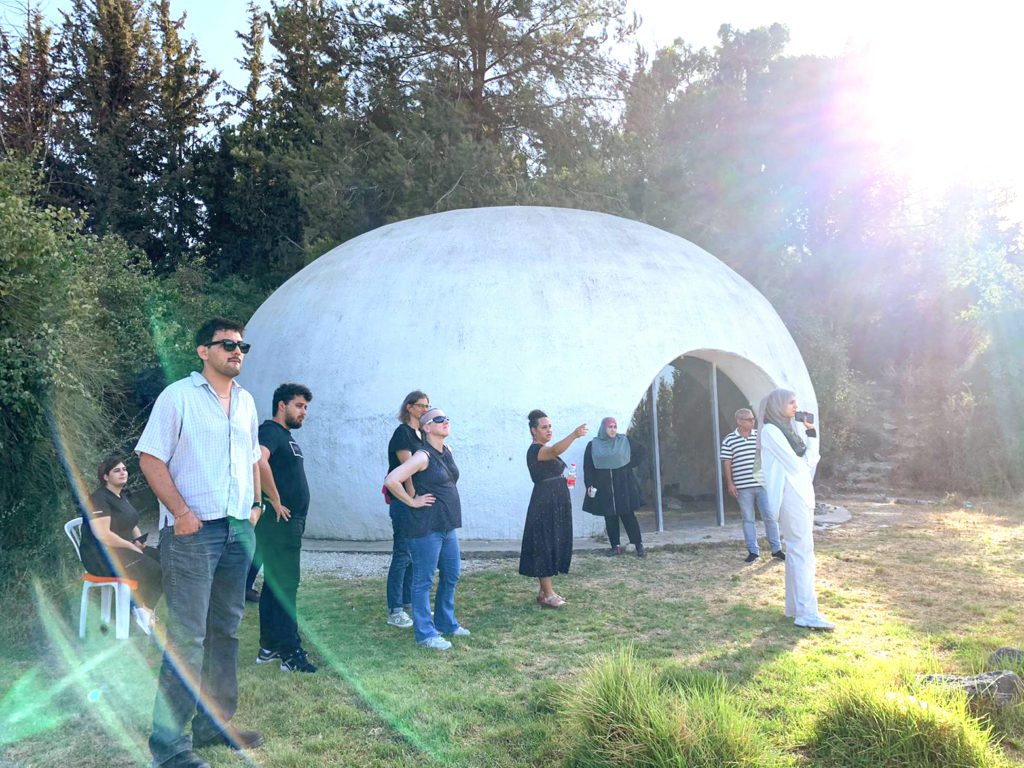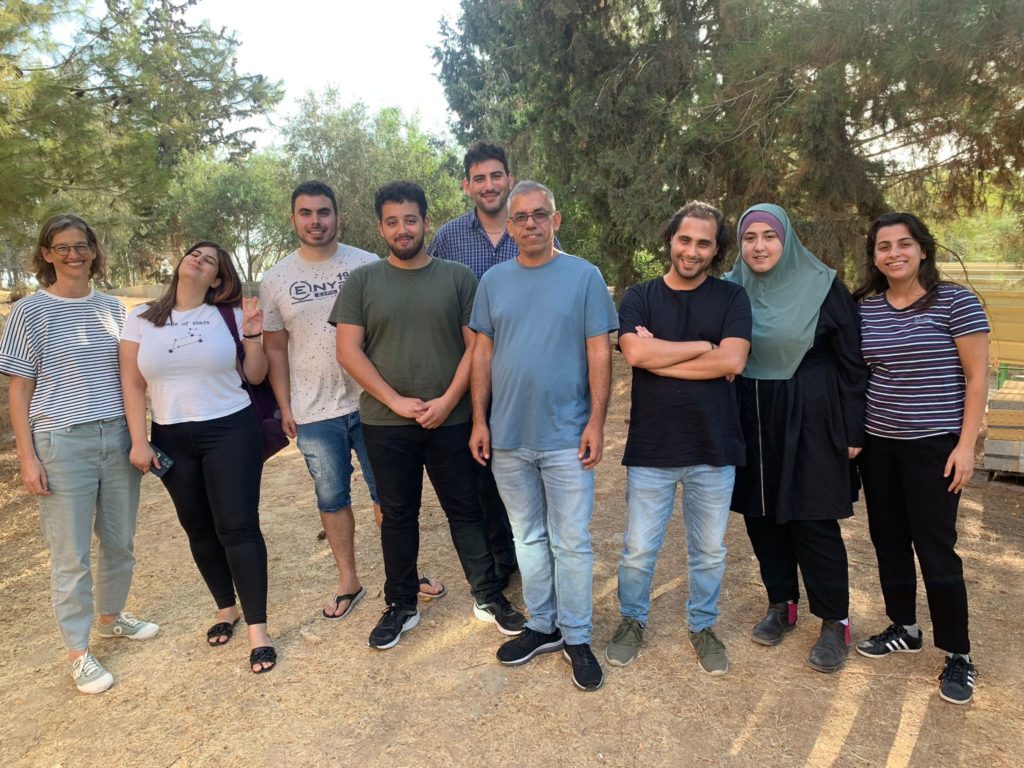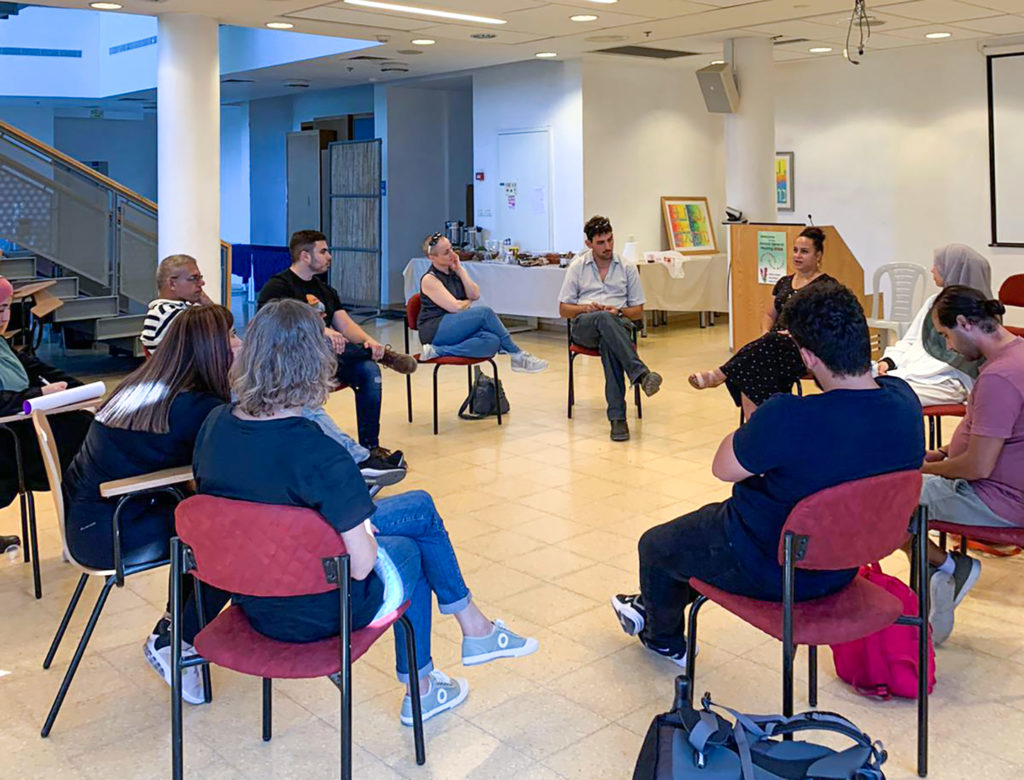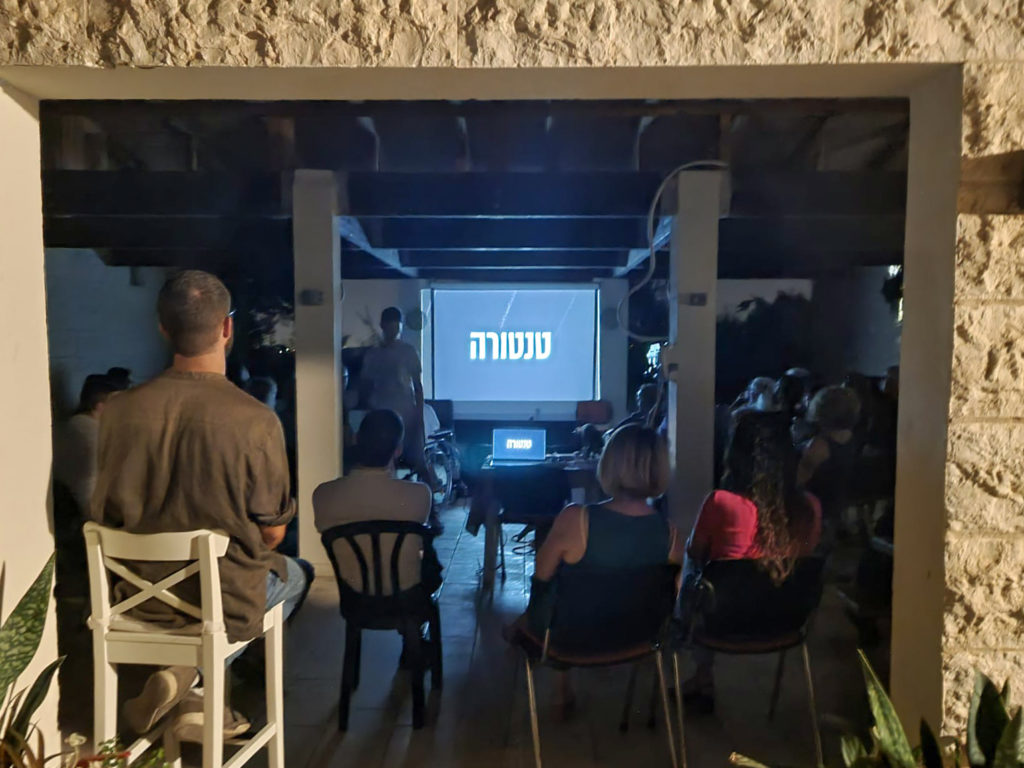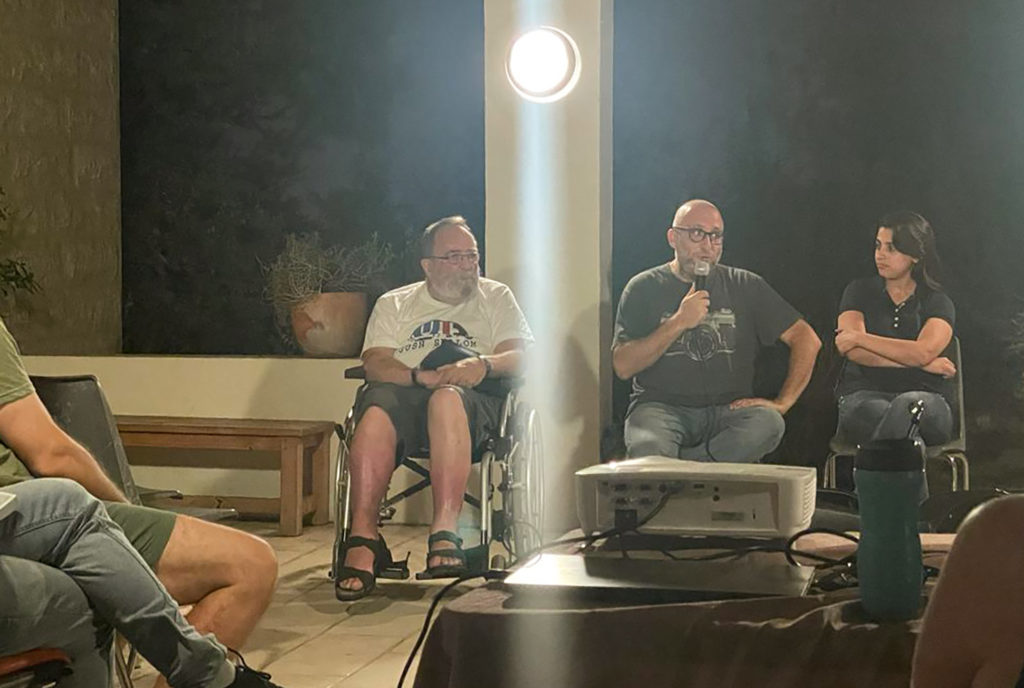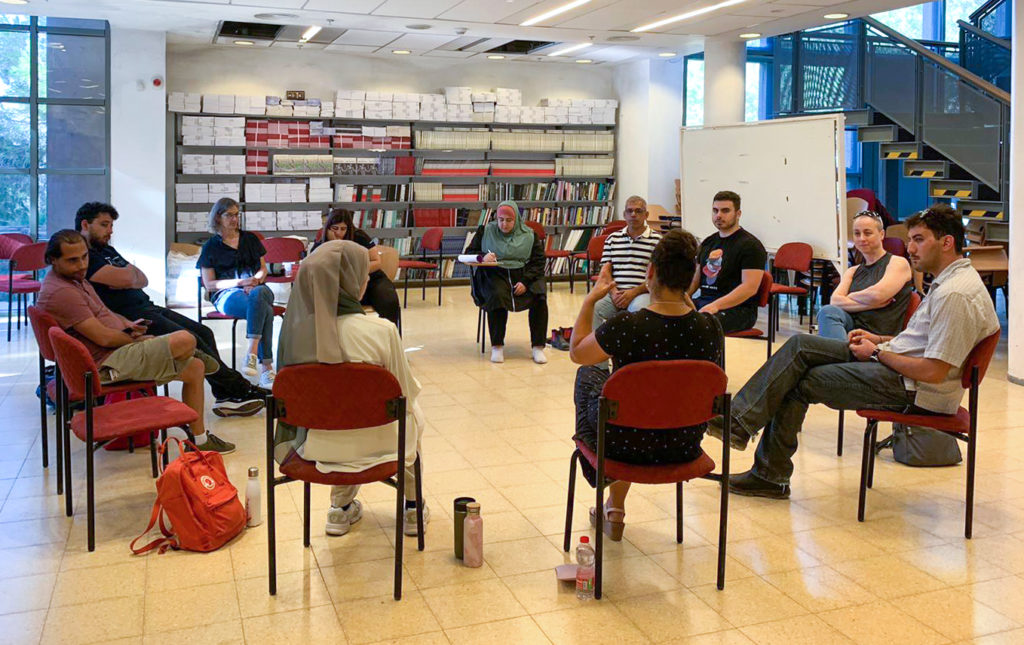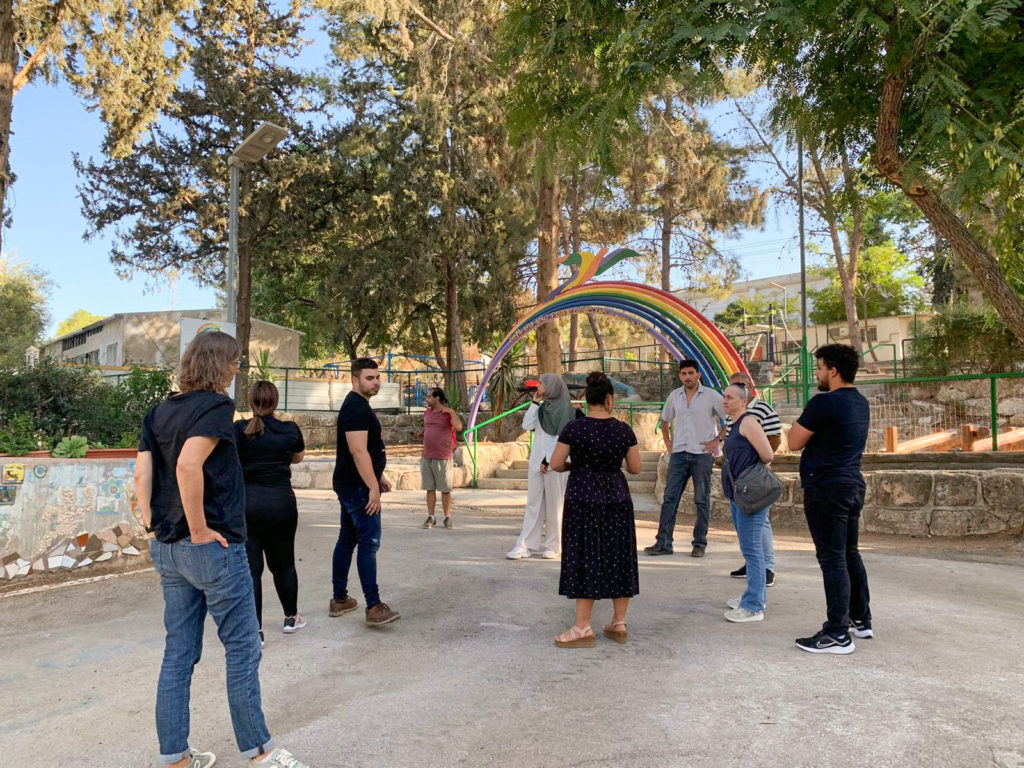A weekend of dialogue for Young Adults
“I attended the workshop mostly out of curiosity about the dialogue sessions, but I leave with a lot of food for thought – much more than I had expected.”
The last September weekend saw 20 young men and women convene for two days of dialogue. All participants were graduates of SFP dialogue courses in academic campuses – held at Rupin Academic Center, Beer Sheva University and Tel Aviv University in the past two years.
The weekend workshop included both binational and national dialogue groups, led by trained facilitators Ibrahim Agbaria and Tal Kulka, and 3 activity content modules:
- A tour of Wahat al Salam-Newe Shalom village, led by local resident Nur Najjar.
- A screening of the documentary film “Tantura,” followed by a panel led by SFP team member, Noor Abo Ras; the film’s director, Alon Schwartz; and the film’s protagonist, Teddy Katz.
- A political imagination workshop led by SFP team member, Moran Barir
The group process was relatively short, spanning only two days, but was nevertheless very meaningful. The group tackled central issues, such as identity, multi-culturalism and cultural relativism, personal versus collective spheres of life, the influence of external power dynamics on group dialogue, the role of the Arabic language within the group and in day-to-day life, feelings of fear and security, and morality. Participants also discussed questions pertaining to their overlapping professional fields, since most were health and mental health professionals.
Participants reported that the process felt meaningful and concise, and that the honesty and depth with which it was delivered facilitated a safe and enabling environment.
Participant quotes:
“I leave this workshop with several ongoing missions: the first is to continue to explore the issues (the Tantura incident in particular, and the Nakba in general), as well as introspect on my personal degree of acceptance or denial of the events; and the second is to ask Palestinians I meet here and there to tell me their families’ stories, and to lend an empathetic ear.”
“I now understand my grandmother’s dementia: she wanted to forget the horrors of the Nakba. I also realize that this trauma was transmitted through generations, although nobody really talks about it. The workshop has helped me understand the root of my family’s dysfunction.”
“The workshop allowed me to reflect on our moral status, and to question it. In ‘Tantura,’ we saw people serve as soldiers and officers perform horrible acts only a few years after the horrors of the Holocaust, which undermined my assumptions of morality.”
“There’s a big difference between hearing reports from the media and other external sources, and coming in direct contact with the other side. Hearing Palestinian participants’ family histories, and their trying experiences, provided me with a new perspective on the political situation, and improved my ability to empathize.”
